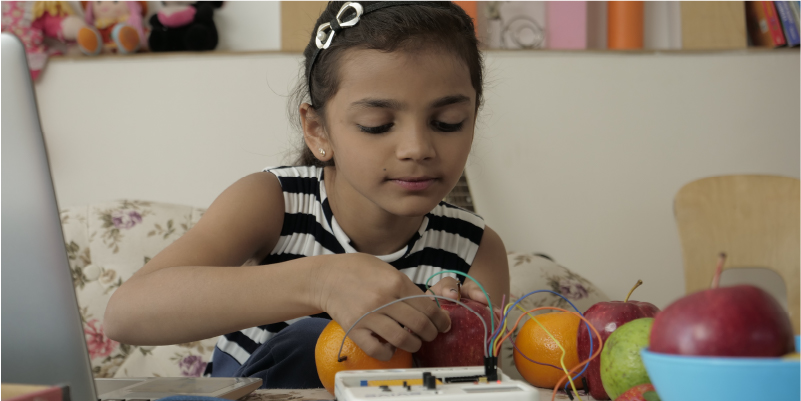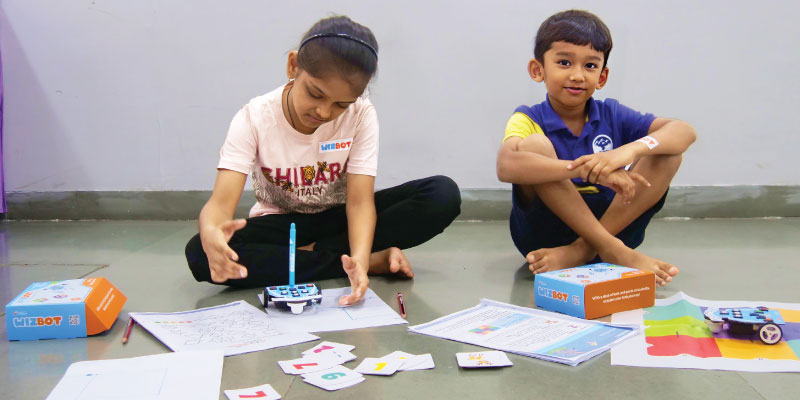2 plus 2 is four, minus 1 is 3, quick maths.
Now, though not many people are going to understand the beauty of this song, one thing it clearly proves that there is hardly anything that mathematics can’t help you with – right from predicting the wonders of the universe to writing memorable song lyrics!
Jokes apart, mathematics really is a fundamental part of our lives, nature, the world, and the entire universe; in a nutshell, it is all around us. Whether you’re counting the number of days until your next vacation or paying for the items you bought at the grocer’s or calculating how many trips the entire DNA in your body can make to Pluto and back, you’re using numbers and calculations, whether simple or complex; you’re using mathematics. Shakuntala Devi, Indian writer, and mental calculator once rightly said that:
Without mathematics, there’s nothing you can do. Everything around you is mathematics. Everything around you is numbers.
Importance of Math
Mathematics has been a part of the school curriculum since forever. Children are taught what numbers are, how to add them, then subtract one from the other, then multiply, divide, so on and so forth. But they aren’t, perhaps, explained or told why they’re doing it and how it will help them in as they go further into life; all they’re told is what they need to do. This is why many of them don’t really appreciate what they’re being taught and tend to lose interest in the subject, even hate or fear it in many of the cases, as they grow.
Why do children dread mathematics? Because of the wrong approach. Because it is looked at as a subject.
– Shakuntala Devi
To prevent this from happening and to keep children interested in mathematics, they need to be told why it is important for them to learn mathematics. For starters, mathematics is used in a lot of the activities and tasks that we perform in our day-to-day life, right from telling the time, buying groceries, to cooking, managing the monthly budget, and even decorating and/or renovating the house! How else would you find out how many minutes until your friends arrive for a sleepover, how much does your favourite morning cereal cost after a discount of 20%, how many cups of water must you add to make the perfect bowl of instant noodles, and how much paint will be required to paint your entire bedroom?
Apart from helping us with daily activities, mathematics helps engineers building the skyscrapers that touch the skies and stand tall and rocksteady even in the face of adversities, bridges that effortlessly bear the weight of hundreds of thousands of vehicles passing through them each day, and trains that travel at mind-boggling speeds. It helps scientists predict the existence of new particles, send astronauts into space, launch satellites that travel beyond the solar system, and calculate how much time we have with us to make amends before the consequences of global warming become irreversible.
If this is not enough to convince you, here’s how mathematics can help you at a personal level. Learning mathematics is good for your brain. A study conducted by Dr Tanya Evans of Stanford University showed that children who know math are able to use certain brain regions more reliably and have a greater amount of grey matter in those regions than those who don’t. Mathematics helps in developing important and much-needed skills of the century such as problem-solving, and deductive and inductive reasoning. It helps in looking at everyday things and solving problems logically, one step at a time, in a systematic and efficient manner; in a nutshell, it helps improve analytical thinking.
Hence proved (pun intended) that if you want to do something as basic as cooking or something not so basic, such as sending astronauts into space, knowing mathematics is very important.
Maths and STEM
Since the last decade or so, STEM has seen an exponential rise in its prevalence in the last decade or so, courtesy the efforts of governments, organisations, companies, and school all across the globe. And if you’re new to it, here’s a gist of what it is:
STEM is an amalgamation of Science, Technology, Engineering, and Mathematics – the disciplines which help the economy to thrive and ensure a healthy society – in such a way that one is able to relate to the real world and develop skills such as curiosity, creativity, critical thinking, problem-solving and innovation skills; skills are imperative to keep up with the pace at which the world is advancing.
Though mathematics is represented by the last letter, it sure holds the maximum importance. The three remaining subjects highly depend on it in order to quantify their findings, theories, and results. The require mathematics to come to their rescue whenever they need to prove their credibility and apply their concepts. Thus, to excel in STEM, one needs to have a sufficiently good understanding of mathematics.
How Can Parents Help Their Kids With Maths?
As a parent, it is normal for you to be concerned about your child’s future; and looking at the speed with which the world is progressing, this concern will only intensify. But don’t you fret! It doesn’t matter whether you yourself belong to the field of STEM or not, it doesn’t matter whether you work in the field of mathematics or not; you can always encourage your children to learn mathematics and help them in their journey.
The first thing you can do is, well, make them realise how mathematics helps them in the different activities that they perform on a daily basis, such as playing, and doing homework. Then show them how it helps you in running the house. You can do this taking them shopping with you, asking them to help you with different tasks such as cooking, baking, and gardening. Then, look for mathematics around you in places others than your home, such the playground, the petrol pump, or the theatre. You can also look for it on the go while travelling, be it in your own car, a train, or a plane. The key here is to become an active part of their journey as their learning companions and not just a passive spectator. And as always, encourage them, praise them, and reward them for their efforts, and even the little successes that they achieve.
In A Nutshell
Mathematics is all around us; it lives with us in our homes and it is out there everywhere in nature. All of us must know at least the basics of mathematics in order to understand and appreciate the world we live in. As it advances, learning mathematics becomes all the more important because the pillars that are responsible for its progress, in turn, rely on mathematics. As parents, the best you can (and should) do is teach your children the importance of mathematics in their lives outside of school and encourage them to learn it not as a scary subject but as an essential part of their being that is going to help them appreciate their surroundings and work for the betterment of the world.










